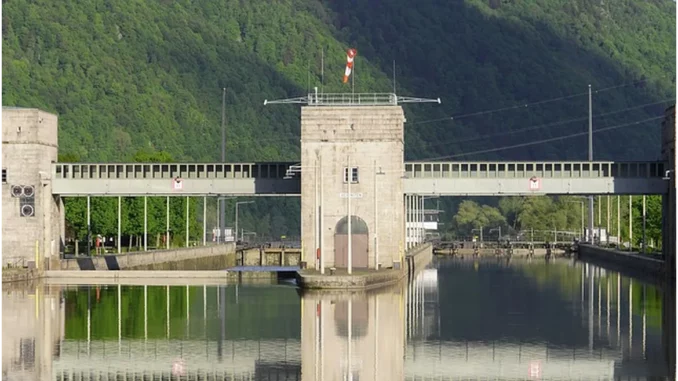
Summary
Alarming Water Waste Sparks Urgent Call for Storage Solutions in Krishna Delta
In a year marked by alarming water management inefficiencies, 798 tmc of water from the Krishna River has been wasted into the sea, highlighting a critical need for better storage solutions. Ravi Kumar, an experienced irrigation specialist, emphasises the urgency of addressing this issue, noting the “heartbreaking” waste of what he describes as the region’s “lifeblood.” The current infrastructure, epitomised by the Prakasam Barrage with its limited 3.1 tmc capacity, is woefully inadequate, leaving the delta’s agricultural demands unmet. Proposed projects at Chodavaram and Bandikollanka offer hope, yet remain stalled, underscoring the need for decisive policy action.
Main Article
In the bustling city of Vijayawada, the Prakasam Barrage serves as a crucial yet insufficient guardian of the Krishna River, a vital resource for the region’s agriculture and communities. This year, an astonishing 798 tmc of river water has been lost to the sea, a figure that spotlights the inadequacies in current water management strategies. Ravi Kumar, a well-respected irrigation expert familiar with the Krishna Delta’s intricate water dynamics, articulates the gravity of the situation.
“The Krishna River is our lifeline,” states Kumar, reflecting on the extensive impact of water wastage. “To see so much of it disappear is truly heartbreaking.” The 798 tmc represents not just water lost, but countless missed opportunities—opportunities to irrigate fields, support livelihoods, and ensure a stable future for the region’s inhabitants.
Infrastructure Challenges
The Prakasam Barrage, with its gross storage capacity of merely 3.1 tmc, falls short of the delta’s agricultural needs. Despite receiving considerable water inflows, particularly during the monsoon months, the barrage is unable to capture and store the excess. September alone saw 476 tmc of water drain into the Bay of Bengal due to limited storage infrastructure.
“The infrastructure we have is outdated and insufficient,” Kumar explains. “We managed to utilise only 93 tmc this season, with much of it coming from the Godavari River through the Pattiseema lift irrigation scheme. This leaves us vulnerable to shortages during dry spells.”
This inability to store water efficiently places immense pressure on local farmers, who rely on consistent water supply for their crops. The current situation forces them to hope not just for rain, but for effective water retention—a reality that leaves many in limbo.
Potential Solutions
Proposed initiatives such as the construction of a check dam at Chodavaram village and a project at Bandikollanka offer promising solutions. These projects, designed to store 4.131 tmc and 4.95 tmc respectively, could significantly enhance the region’s water management capabilities. However, despite their potential, these projects remain stalled due to bureaucratic hurdles.
“It’s frustrating to see potential solutions stuck in limbo,” Kumar laments. “These projects could revolutionise our ability to manage water, yet progress is slow.”
Financial considerations are also a significant factor, with the combined cost of these initiatives exceeding 2,500 crore. However, Kumar warns that the financial cost of inaction is far greater. “The water we waste today could spell disaster for tomorrow’s harvests,” he cautions.
Detailed Analysis
The challenges facing the Krishna Delta are emblematic of broader issues in water management across India. With climate change exacerbating monsoon variability, effective water storage and management are more crucial than ever. The current predicament underscores the need for a strategic shift towards building resilience against such uncertainties.
Moreover, the bureaucratic delays impeding potential solutions reflect a deeper need for streamlined governance and policy prioritisation. As Kumar highlights, this is not merely an infrastructural challenge but a policy and governance issue. The focus must extend beyond constructing new dams to fostering a water management mindset that prioritises sustainability and resilience.
Further Development
As the situation unfolds, the spotlight will inevitably shift to the implementation of proposed water storage projects. Stakeholders are keenly observing whether the government will expedite these initiatives to avert future crises. Additionally, the broader implications of this water management challenge could influence policy reforms at both state and national levels, with potential ripple effects across other regions facing similar issues.
Stay tuned for in-depth coverage of the evolving developments in the Krishna Delta, as well as expert analyses on the implications for India’s water management strategies.

